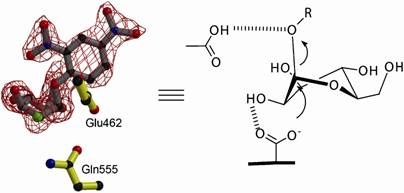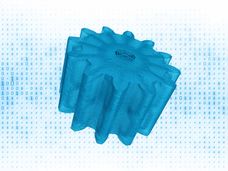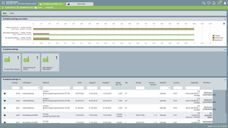Helping create a revolution in Biocatalysis of next generation pharmaceuticals
RDT supplies chemistry equipment
Radleys Discovery Technologies (RDT) has been selected by the Biochemistry-Chemistry-Engineering interface (BiCE) programme to supply parallel chemistry equipment to help speed process selection and investigation of chemistries and biocatalysts in the synthesis of novel molecules to be used in the development of next generation pharmaceuticals.
Traditional chemical approaches to large-scale production of complex molecules identified by life science discovery often require long multi-step syntheses that reduce yields and suffer from a lack of selectivity. Novel small molecule biocatalysis offers a route to providing enhanced selectivity under mild conditions and can potentially give shorter and easier synthetic pathways. The BiCE programme draws upon the latest developments in bioprocess modelling, biocatalyst modification, informatics and process miniaturisation to create the next generation of pharmaceuticals at lower cost and with higher efficiency. The programme, funded by the UK EPSRC, brings together leading academic researchers from the Departments of Biochemical Engineering, Chemistry and Biochemistry & Molecular Biology at University College London (UCL) with a consortium of 11 major pharmaceutical / chemical companies and equipment / software manufacturers.
The parallel chemistry equipment supplied by RDT included Carousel 12-Place Reaction Station and Carousel 6-Place Reaction Station products. Reflecting upon the equipment selection - Professor John Woodley (BiCE Coordinator) commented 'we chose RDT parallel synthesisers because they are widely used in catalyst research, easy to use, reliable and good value for money'. He added 'the RDT equipment has successfully enabled us to perform temperature controlled parallel chemoenzymic conversions on a small scale above that possible in multi-well plates providing a very valuable complementary approach'.
With over 6,000 systems installed worldwide RDT is the market leader for affordable parallel synthesis tools, offering an unrivalled range of synthesisers and work-up systems to aid the productivity of chemists.
These products might interest you
See the theme worlds for related content
Topic world Synthesis
Chemical synthesis is at the heart of modern chemistry and enables the targeted production of molecules with specific properties. By combining starting materials in defined reaction conditions, chemists can create a wide range of compounds, from simple molecules to complex active ingredients.

Topic world Synthesis
Chemical synthesis is at the heart of modern chemistry and enables the targeted production of molecules with specific properties. By combining starting materials in defined reaction conditions, chemists can create a wide range of compounds, from simple molecules to complex active ingredients.































































